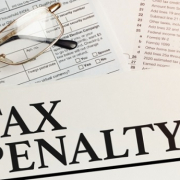The IRS’ Dirty Dozen Scams: What They Are and How To Safeguard Your Information And Money
 The Internal Revenue Service is continuing to warn taxpayers about what it deems its “Dirty Dozen” Tax Scams List for 2022, following up on its June 2 statement.
The Internal Revenue Service is continuing to warn taxpayers about what it deems its “Dirty Dozen” Tax Scams List for 2022, following up on its June 2 statement.
Now, it is urging that you watch out for pandemic-related scams including theft of benefits and bogus social media posts, “a sad reminder that criminals still use the COVID-19 pandemic to steal people’s money and identity.”
“Scammers continue using the pandemic as a device to scare or confuse potential victims into handing over their hard-earned money or personal information,” IRS Commissioner Chuck Rettig said in a new announcement June 6. “I urge everyone to be leery of suspicious calls, texts and emails promising benefits that don’t exist.”
The IRS said that these scams can take a variety of forms, including using unemployment information and fake job offers to steal money and information from people.
“Caution and awareness are our best lines of defense against these criminals,” Rettig added. “Everyone should verify information on a trusted government website, such as IRS.gov.”
COVID-19 pandemic-scams include Economic Impact Payment (EIP) and tax refund scams. The IRS said that identity thieves who try to use EIPs are a continuing threat to individuals. Some signs to be on the lookout for include “any text messages, random incoming phone calls or emails inquiring about bank account information, requesting recipients to click a link or verify data.” These type of messages should be immediately deleted before even opening, according to the IRS.
The agency also reminded taxpayers that it doesn’t initiate contact by phone, email, text or social media asking for Social Security numbers or other personal or financial information related to stimulus payments.
Another scam includes unemployment fraud leading to inaccurate taxpayer 1099-G, as “scammers also took advantage of the pandemic by filing fraudulent claims for unemployment compensation using stolen personal information of individuals who had not filed claims. Payments made on these fraudulent claims went to the identity thieves.”
The IRS said that taxpayers should also be on the lookout for a Form 1099-G reporting unemployment compensation they didn’t receive, and if that’s the case, to contact the appropriate state agency for a corrected form. In addition, the IRS warned of fake job postings on social media, which “entice their victims to provide their personal financial information,” according to the announcement.
Finally, the agency warns of fake charities, which “tend to be a bigger threat when there is a national crisis like the pandemic.” Indeed, taxpayers who give to a charity may be able to claim a deduction on their federal tax return, if the donation is to a qualified charity, to get a deduction.
The IRS provided some tips to avoid being scammed by bogus charities:
- Don’t let callers pressure you, as any legitimate charity will be happy to get a donation without rushing. Donors should be encouraged to take their time to do proper research.
- Ask the fundraiser for charity’s exact name, web address and mailing address, so it can be confirmed at a later time.
- Be careful how you pay, as charities shouldn’t ask for payment by giving numbers from a gift card or by wiring money — this practice is how scammers ask people to pay. Remember: it’s safest to pay by credit card or check –but only after doing research on the charity.
Source: GoBankingRates

